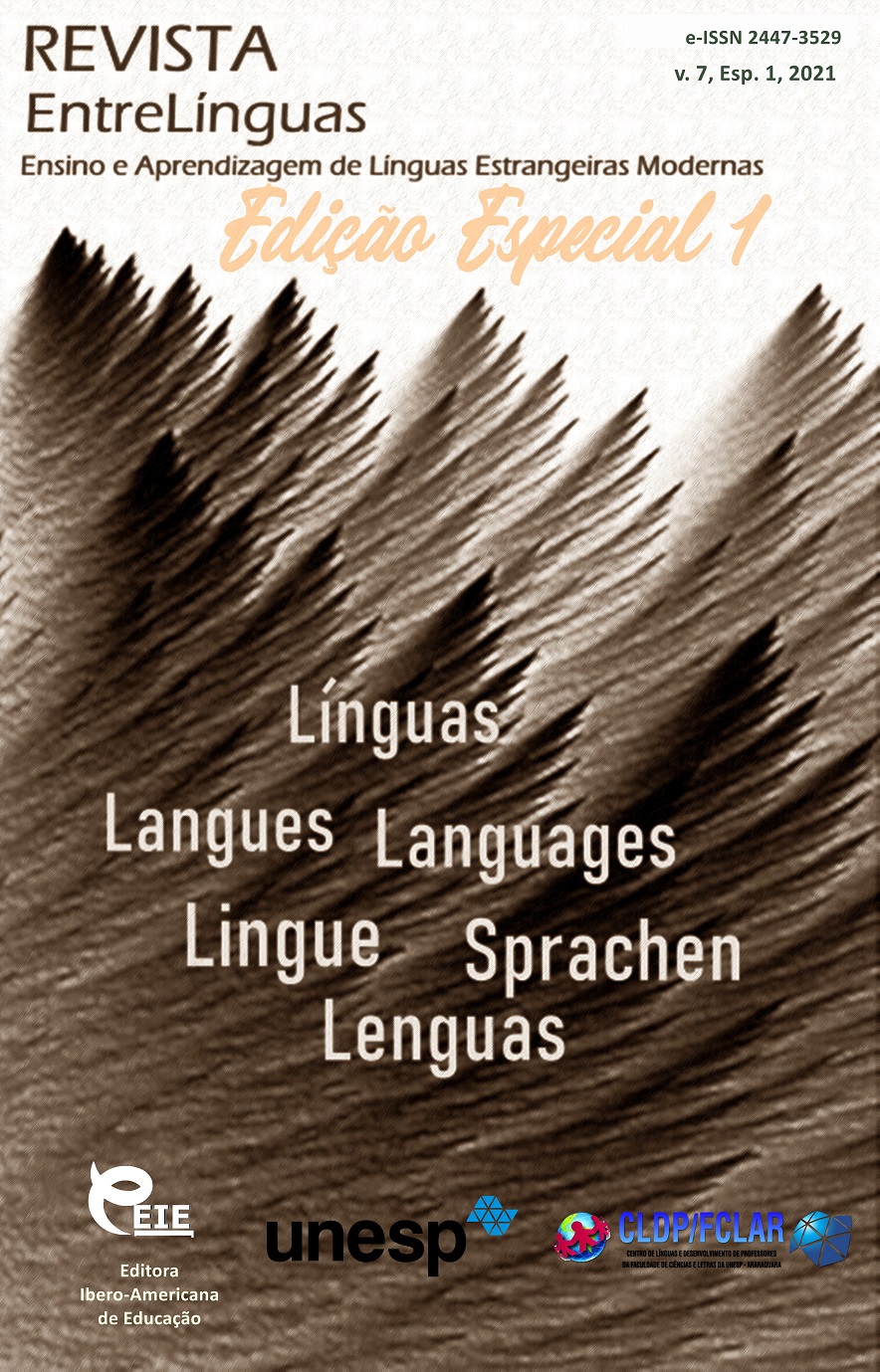Educational web resources as an essential part of the English learning process
DOI:
https://doi.org/10.29051/el.v7iEsp1.14859Keywords:
Educational web resources, Website, Internet technologies, Information search, Language learning, English languageAbstract
The article discusses the use of educational web resources in the process of learning English. The authors present different web resources to teach English which have proved to be an effective source in second language acquisition. Web resources help to improve the foreign language perception, to study grammar rules and correct pronunciation, to get acquainted to the culture of the target language and to heighten the interest of learning a foreign language. The advantage of using web resources lies behind the didactic principle of visibility. Visual representation of material proves to be the most important tool to better perceive information and to overall motivate children to stay focused on the task, while creating a natural language environment. As a result of this analysis the authors strongly agree on the benefits of using authentic web resources in teaching English. The analysis has also shown a complete correlation between the use of Internet technologies and course content mastering.
Downloads
References
GRIGORYEV, S. G.; GRISHKUN, V. V. Informatization of education. Fundamental basics. Moscow, , 2005. 227 p.
KABIROVA, A. A. et al. Educational Internet Resources in Turkic Languages. HELIX, v. 8, n. 1, p. 2469-2472, 2018.
KAYUMOVA, A.; SADYKOVA, G. Implementing a multimodal online program for very young learners of Russian: Educators' perspective. Indonesian Journal of Applied Linguistics, v. 9, n. 1, p. 1-13, 2018.
KOSTYUCHENKO, M. V.; TRUTNEV, A. Y. Internet resources in the English language learning. International Journal of applied and fundamental research, n. 1, p. 181-185, 2018.
MUKHAMADIAROVA, A. F.; MERKISH, N. E.; KULKOVA, M. A. The advantages of using multimedia cultural and linguistic environment in the process of teaching foreign languages. Revista Publicando, v. 5, n. 16, p. 332-339, 2018.
N VASSILIEVA, V.; V DRUGOV, A. Integrative Use of “Techno-R” Remedial Technology and Gaming Technology in Teaching Foreign Language Listening. In: INTERNATIONAL CONFERENCE ON APPLIED LINGUISTICS ISSUES, 6., 2019, Saint Petersburg. Proceedings […]. Saint Petersburg, Russia, 2019. p. 463-472.
POTAPOVA, R. K. New information technologies and linguistics: teaching guide. Moscow: KomKniga, 2005. 368 p.
UHLIROVA, M. Semantic space of elementary teacher attitudes towards computer teaching assistant. Global Journal of Information Technology: Emerging Technologies, v. 8, n. 1, p. 1-9, 2018.
Downloads
Published
How to Cite
Issue
Section
License

This work is licensed under a Creative Commons Attribution-NonCommercial-ShareAlike 4.0 International License.
Os manuscritos aceitos e publicados são de propriedade da Revista EntreLínguas. Os artigos publicados e as referências citadas na Revista EntreLínguas são de inteira responsabilidade de seus autores.
Transferência de direitos autorais – autorização para publicação
Caso o artigo submetido seja aprovado para publicação, já fica acordado que o(s) autor(es) autoriza(m) a UNESP a reproduzi-lo e publicá-lo na EntreLínguas, entendendo-se os termos “reprodução” e “publicação” conforme definição respectivamente dos incisos VI e I do artigo 5° da Lei 9610/98. O artigo poderá ser acessado pela rede mundial de computadores (Internet), sendo permitidas, a título gratuito, a consulta e a reprodução de exemplar do artigo para uso próprio de quem a consulta, desde que haja a citação ao texto consultado. Essa autorização de publicação 328 EntreLínguas, Araraquara, v. 1, n .2, p. 323-328, jul./dez. 2015 não tem limitação de tempo, ficando a UNESP responsável pela manutenção da identificação do(s) autor(es) do artigo. Os artigos publicados e as referências citadas na Revista EntreLínguas são de inteira responsabilidade de seus autores.











